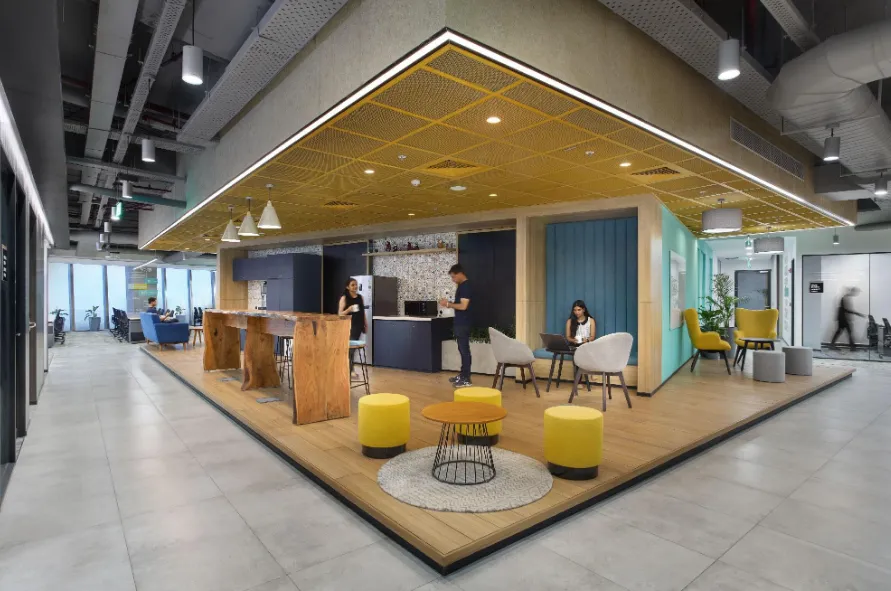
Key Challenges Startups Face When Upgrading Their Workspaces
SMM ALIPAYUS Jan 6, 2025 Business
As your startup expands, one of its key decisions is how best to upgrade its workspaces. As your team and responsibilities change over time, what once worked might no longer meet them. Many startups choose some of the best-shared office spaces which offer flexibility and scalability as an essential solution when scaling their growth, yet upgrading can pose its own set of unique difficulties.
some of the best-shared office spaces1. Determining Your Startup’s Evolving Needs
At first, when starting up a startup you likely work with a smaller team and your workspace may be very straightforward – perhaps team members work from home or share an office. However, as your business develops so will its needs. One of the first challenges will be establishing how much space each of these growing teams needs to operate efficiently.
Your team size will increase, necessitating additional space to house different departments or functions. However, expanding the workspace doesn’t simply involve adding desks. Instead, creating areas that foster collaboration and brainstorming while giving employees dedicated spaces is crucial for its success. Finding this balance between private offices and open areas will determine its success as an expansion endeavor.
2. Finding an Appropriate Location
Location can play an integral part in recruiting top talent and maintaining strong client relations, so choosing an office that is easy for employees to access while remaining close enough for clients/potential partners/business partnerships will play an essential role in employee productivity, networking opportunities, and overall business success.
However, finding the ideal location requires not just finding it; but balancing this with affordability as well. Prime office spaces in premium locations tend to come at a premium price tag which could prove difficult for startups that lack steady cash flows yet. That is where shared office spaces come into their own: offering flexible rental terms without long-term commitments that give startups the ability to test out different locations before making decisions on long-term commitments.
3. Designing an Adaptable Office Layout
A key challenge of finding a new office space lies in designing an adaptable layout to accommodate the evolving needs of your team. In its initial days as a startup, office layout might remain relatively straightforward – yet as your staff increases in numbers and your office evolves along with them, adaptability becomes critical in accommodating future expansion.
An emerging startup typically demands both open spaces for collaboration and private offices to focus on individual work tasks. To accommodate both environments while also accommodating future changes – which might mean additional conference rooms, storage areas, or break rooms down the line – choosing a workspace that adapts as you grow is of utmost importance.
4. Managing Expanding Infrastructure and Amenities
As your startup expands, so will its needs for infrastructure and amenities. In the beginning, perhaps your initial requirements were limited to some laptops with basic Wi-Fi service and one meeting room; but as your team grows so will their infrastructure needs.
Your new office may require more robust technology to facilitate communication and collaboration among team members. You might require high-speed internet, larger conference rooms, printers, scanners, projectors, or additional office equipment such as printers. Printer services as well as employee lounge areas could become essential.
5. Cultivating a Conducive Work Environment
As your startup scales up its workspace, its culture must remain conducive. A positive and collaborative workplace becomes even more vital as its team expands; having an office designed specifically with this in mind can foster teamwork, creativity, and productivity – ultimately keeping employees happy while drawing in new talent.
But this doesn’t happen by chance: creating an ideal working environment takes careful thought and design. A productive atmosphere needs both private and open areas that foster collaboration while providing employees with enough autonomy when they work alone when required, natural lighting sources, break rooms, and areas dedicated to relaxation are also key in producing an atmosphere where employees remain happy and productive.
Conclusion
Upgrading your workspace as your startup evolves can be one of the key challenges of growth. Planning and making decisions that support long-term business success are the keys to finding an appropriate office environment as your team expands. When expanding a startup team, it’s essential to create a space that supports collaboration while offering amenities necessary for creating an ideal work culture.
expanding a startup team



